Dan Cassaro
Dan Cassaro is a freelance graphic designer. His well contemplated thoughts on satisfaction were honest, insightful, and gave us a lot to chew on.
Our interview took place on at the Pencil Factory.
What are you most passionate about?
Obviously, I’m super passionate about the creative work that I do, I love that. And I’m lucky to be able to do it for a living. But I think I’m more interested...in the idea of being a multi-faceted person and being able to spread my interests out all over the place and be excited about as many things as possible.
I was thinking about it, and I think that the most interesting people I know are the people that have lived many lives and have done multiple different things and tried different things before landing wherever they landed. Also, it makes your work better. To be a well-rounded person makes your work better because it makes you relatable and flexible, and it makes your work more engaging because you’re totally tied to the whole world that’s going on around you instead of having this narrow focus.
To me, the most boring thing that someone could do would be to decide at [age] eighteen: "This is exactly what I want to do for the rest of my life," and hyper focus on that [thing], then get a job doing that [same thing], and then continue to do that—that sounds really boring to me. So yeah, being able to be excited about multiple things at once is really important to me.
Has that always been important to you? How about when you were younger and in school—did you go to art school?
I went to school for design, but when I was twenty-three. I went to art school for fine arts when I first got out of [high] school, [but then I] got kicked out of that and everything sort of fell apart and I stopped doing creative stuff. I tried all this other stuff: I went to a liberal arts college, with no art program, for Communication—I don’t even know what that is [laughs]. I lost my way and eventually came back to creative work when I was in my early mid-twenties and then decided to go to school for graphic design.
Then, sort of rediscovering [art] as an adult led me to appreciate it in this way that I never did before. It totally saved my life because I had spent so long trying to figure out other stuff to do [which included] partying and doing drugs. I had lost that creative part of my life that was so important to me when I was younger. When I decided to start taking care of myself and stop doing drugs, I felt like I had nothing left. I didn’t have a family around me, I didn’t have friends, and to rediscover creative work at that age gave me a reason to get up in the morning, you know? So, it was a long road to end up here, but I think it worked out for the best for me.
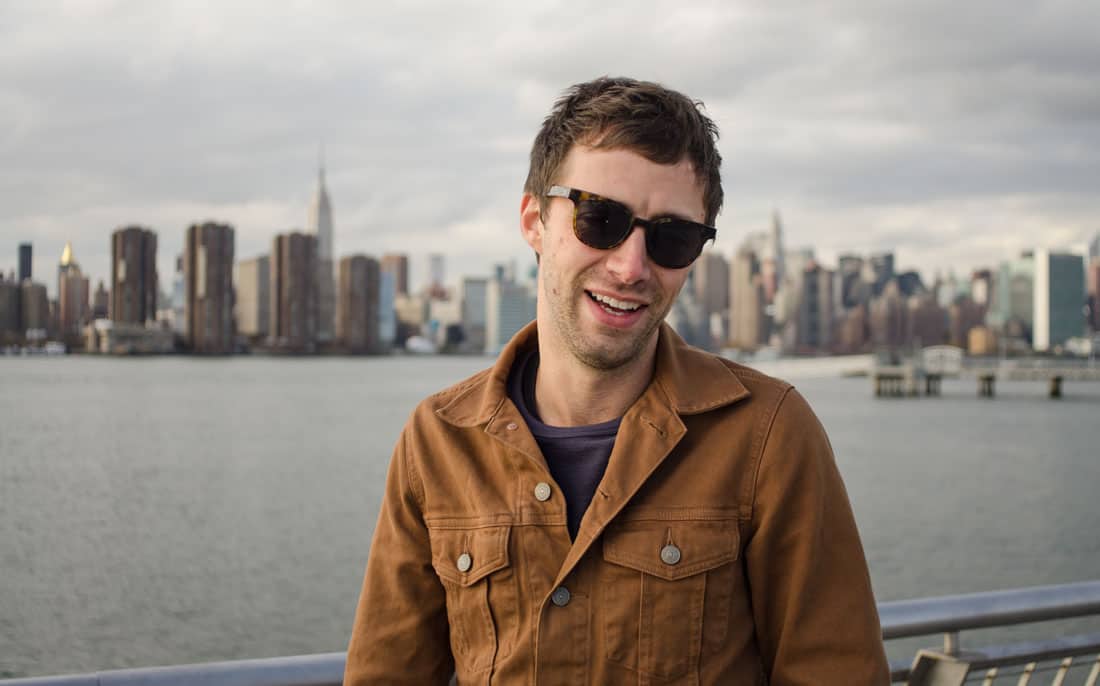
So when you were just out of high school, was being multi-faceted important to you?
This might be something that I’m just saying in hindsight, that I realize now. I don’t think that I necessarily thought like that when I was eighteen, or even when I first went to design school. I’m sure I just said "I’m gonna be the BEST graphic designer!" Maybe [being multifaceted is] just something that makes more sense to me now, but it’s not necessarily true for everybody.
Some people are really talented and also get lucky and are good at one thing, and it’s enough to propel them into having a successful life. I don’t know if that necessarily works for everyone, especially in graphic design, because it’s tied to commerce. It’s influenced by a whole bunch of things that have nothing to do with graphic design, like music and culture and politics and all that stuff. So being able to be informed and interested in all those things…literally makes your work better.
Talk about one of your hobbies.
I love music. I think that if I wasn’t doing something with visual art, I would probably be doing something with music.
Do you play instruments? What do you play?
I play the ukelele, so I don’t really play instruments [laughs]. But yeah, that’s just sort of for fun. Me and my girlfriend play music.
Does she also play the uke?
She plays the viola and she plays guitar and sings, and we both just write songs together.
When did you learn how to play?
I just started teaching myself when I was twenty-three. I had tried to learn other instruments—a bunch of times I tried to learn how to play guitar, but I could never stick to it. For some reason the uke, because it’s always there and it’s so light, you’ll just pick it up and play it for a second, so this stuck.
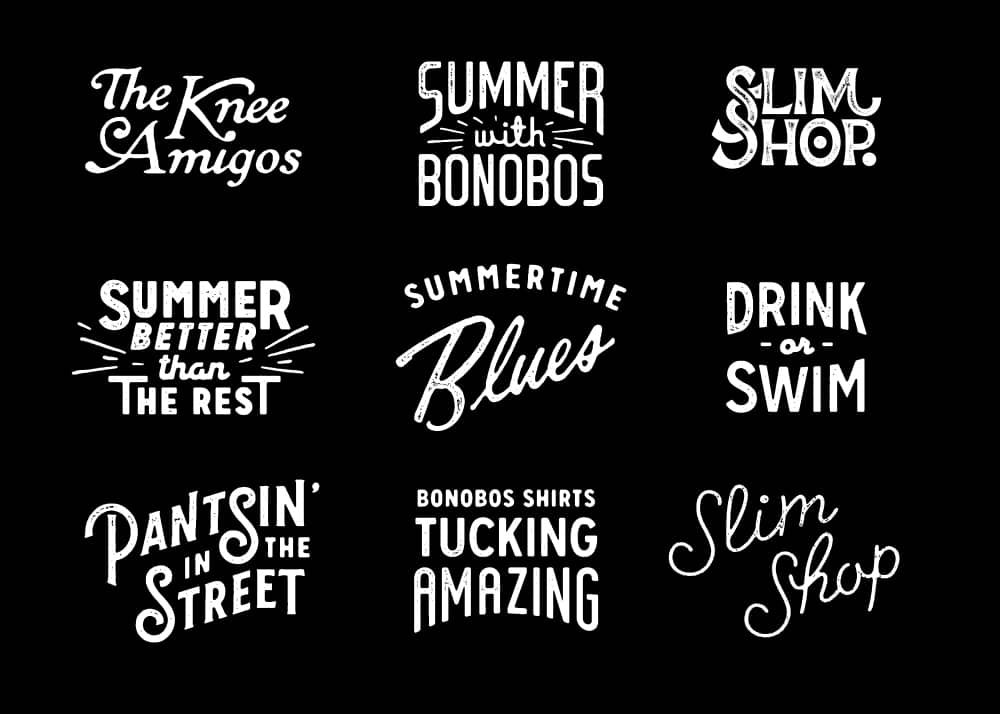
What does it take for you to feel successful at the end of the day?
It’s a crapshoot with creative work, because [success is] hard to quantify. You can work a twelve-hour day, and put in all this time working trying to get this thing right, and still go to bed at night feeling like you didn’t get done what you wanted to get done; you didn’t accomplish what you hoped you’d accomplish. And on the other hand, you can work on something for five minutes, and it can be your favorite thing that you’ve ever made and you feel like it’s perfect. So it’s never really been about time spent, it’s just been about what comes of [any time spent].
For me, it’s about making that thing where something clicks in your brain that tells you—the pleasure part of your brain—"You did this, you made this great thing!" I don’t even know what it is, but I think it’s about making something you didn’t know you could make, surprising yourself. I think [success is] finding that feeling where, all of a sudden, you make something you love and you don’t know why. That, for me, is what it takes to be fulfilled at the end of the day.
I’ll be fine now and I have no responsibilities, but I don’t know if I’ll be able to support myself doing fun creative stuff when I get older. So I think about that sometimes.
So it’s the pursuit of moments like that. Keeping going until you have another moment like that.
Yeah. And that’s the pretty way of saying it, but there’s also just the satisfaction of doing a job. There’s a client and they have a problem, and it’s hard and you can’t fix it, and then you figure out a way [to] solve their problem.
Like a checkmark.
Yeah, like punching the clock, doing your job. I also love that, just regular problem solving design work, too.
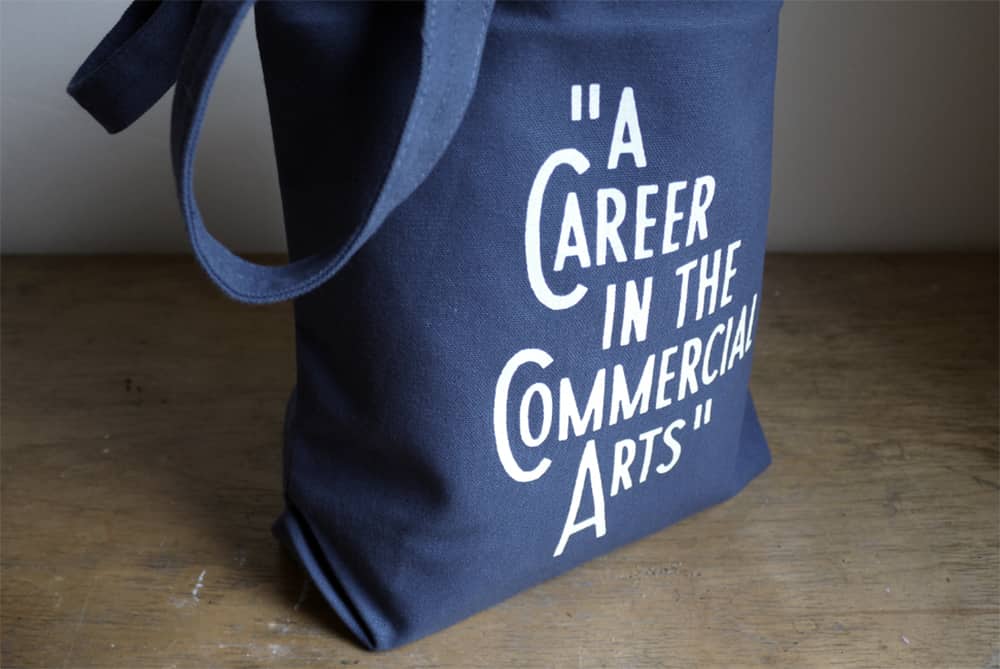
That feeling where you make something you didn’t think you were going to be able to make: how often does that come?
Oh, I don’t know. I don’t keep track of it. But it happens enough. When I was a kid, I can remember it happening. I was thinking about this the other day. It’s a really cool story about me drawing dinosaurs, wanna hear it? [laughs] So I used to draw dinosaurs/dragons/other reptiles when I was a kid, and I would always draw them with their mouths open. So if you’re drawing a dinosaur or dragon profile, you do the top of the head here [gesturing] and then the line for the open mouth, and you put teeth in it, right? I was drawing one with a green crayon and as I was drawing the mouth, I made the line too high, and I thought "Oh shoot, I wanted to make that a little bit lower" so I drew a second line to wrap around, and then I unintentionally had created the perspective of the dinosaur’s open mouth, like you’re looking at it from under it, and I had no idea what had happened! "What is that, that looks so good, I don’t know what that is!" Then I decided to draw teeth on one side, and I drew teeth on the other side, and it was just amazing.
So I drew a hundred more of them, and then, just to prove that I had no idea what it was, I remember trying to do it on the bottom of his mouth too. I said "What if I do it on the bottom too? It’ll be twice as good!" Then I did it and said "That doesn’t feel good, for some reason" because the perspective didn’t make sense [from the bottom of his mouth]. But drawing accidental perspective, that’s the same exact feeling [of] just getting super excited, not knowing you can do something [and] unlocking a new weird part of your brain.
Talk about community.
Around here, all these people are my community, and it’s really great. I never had that when I first got out of school. I was just kind of a lone wolf, and I was freelancing and not tied into any sort of community. A couple years ago I started a personal project (http://statemottosproject.com/gallery/) where I included fifty different designers—I contacted some of my heroes, and people that I sort of knew. After that project I got linked into [a] whole community of designers, and it’s great.
This morning, my girlfriend said, when I was telling her that you guys were going to come here, and you had this blog and you were interviewing designers and stuff, she said "It’s really cool how people in your profession work." Because it’s this lateral system where we build each other up and we inform each other and show other people’s work; people that are doing the same thing as us at the same level, and champion each other.
We’re friends, we hang out, we drink together. We’re all doing the same thing and we’re not sitting around waiting for some famous design publication to come and talk to us about it—we’re talking to each other about it! There’s something about that that’s really nice. This morning, I said [back to my girlfriend] "The other way of saying that is that we’re really self-congratulatory." [laughs] And she said "Oh, yeah, I guess you could say it that way, too." But it’s great. [This community is] something that I didn’t have when I first got out of school, and I have it now and it’s awesome. Especially as someone who’s self-employed, to have these people that are sort of your coworkers that can give you advice and look at your work and inspire you and stuff like that.
You either get to be artistically satisfied or you get to be comfortable monetarily, and I’m worried that one of those things is going to have to be sacrificed at some point.
What have you had to sacrifice to pursue your passion?
I thought about this question for a while, and the first thing I thought was it’s never really felt like a sacrifice for me. It’s felt like this huge gift to be able to do creative work and have someone pay me for it and be able to pay my bills by doing something I love. It’s always felt like a huge gift. I’m sure I’ve had to sacrifice some things, like my health, and the weird hours that I keep, and I’m sure that my personal relationships have suffered just because of the weird stuff that comes from being self-employed, but it’s never really felt like this huge trade-off. I’ve always just felt really lucky that I get to do this.
Is that in part because you feel like design saved your life?
Yeah, definitely. I remember feeling as a kid that being able to be creative and clever in that certain way, and make things that other people couldn’t make, felt like this special thing that I could do that nobody else could do. And that was hugely satisfying for me! When you’re in high school things can be kind of shitty, but then you have this one thing that nobody else has. So that was great, and then losing that….I had a hard time figuring out what I was good at, and what the point of doing anything was. I didn’t have a clear path of where I should be going. So losing that, and then coming back to that made everything fall into place. I thought "This is what I should be doing, and I’m lucky to be able to do this."
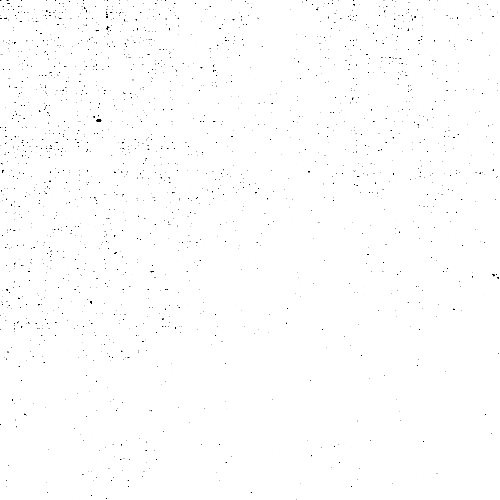
How easy or hard is that to remember?
I thought about it today when I was driving over here: I still feel lucky that I wake up when I want to wake up, and I leave work when I want to leave work, and I get to hang out with my friends while I’m working, and I can take vacations when I want. All that sort of stuff, I think about all the time. And I haven’t been doing this for that long, it’s only been two or three years since I left a full-time job, so it still feels pretty fresh.
When you left the full-time job, were you pretty confident or was it a leap of faith?
It was a little bit of a leap of faith. I knew that I wasn’t going to be making as much money, [and] I knew I wasn’t going to have a lot of the good things that come with having a full-time job. But I also felt like I was prepared, because I knew what my expenses were, I knew that I only had to take care of myself. I can imagine it would be a lot harder if you had kids or a whole family or a mortgage or something to worry about. I was just paying rent and I had to eat, and that was it. So it felt kind of doable. The scary thing is fifteen years down the line. I know I’ll be fine now and I have no responsibilities, but I don’t know if I’ll be able to support myself doing fun creative stuff when I get older. So I think about that sometimes.
Why?
I don’t know if anyone will want to hire me to make a cool logo when I’m fifty or sixty-years-old, you know? [laughs] I don’t think I’ll be getting emails from eighteen-year-olds starting streetwear companies when I’m sixty. So I think about that.
Is there anything you’re afraid you’ll never accomplish?
I don’t know. I think it’s what I was saying, and this is also boring to talk about, but I think my biggest fear is that I won’t be able to support my family and my kids and that I won’t be able to be financially comfortable, and still be able to do the creative work that I want to do. Something in my brain is telling me that for most people, there has to be a trade off. You either get to be artistically satisfied or you get to be comfortable monetarily, and I’m worried that one of those things is going to have to be sacrificed at some point. But, I don’t think I’m unique in that. Everyone who’s self-employed thinks about it, probably every day [laughs]. It’s not a cool thing to think about, it doesn’t fall in line with making fun work, living the dream, blah blah blah, but everyone thinks about it every fucking day, [even if] they don’t talk about it.
Does some of your fear come from seeing people you know who had a career and then changed to have a family?
Not necessarily, because most of the people I know are on the same level as me, give or take a couple of years. Not that many of them are married, because no one gets married until they’re forty in New York. So I don’t have that many friends that are doing the same thing I’m doing that are also married and have kids and have bought a house. But I think that’s part of the fear: I don’t have someone three steps ahead of me sort of showing me the way.
Talk about when you felt like a professional for the first time. Which some people say still hasn’t happened, so that’s fine, too.
Yeah, it’s one of those things. If I saw myself now, three or five years ago, I’d think “Oh my gosh, professional!” But you still don’t really feel like it, you always feel like you’re faking it, or everyone’s going to find out that you’re just sort of winging it.
But the first time I felt like I had done a professional job was right when I graduated, and I had had a portfolio review and met someone that was an art director at the New York Times, and they said “I might call you for an op-ed or something.” So I, you know, wet my pants [laughs]. And like two days after I graduated, she called me and said “Do you want to do an op-ed for us?” And I said “Yeeeeees.” Then I said “How much time do I have?” I’m used to having, like, 6 months to work on a project. She said “Alright, we need it by tomorrow morning.” Which is actually a long time for an op-ed—more than twenty-four hours. And I stayed up all night working on this thing, and didn’t tell my parents, and then a day or two later it was in the paper, and I called them, and said "Go to page four!” There was something about that which felt like I had done a real professional job, and that for all of this time spent horsing around in my life, I finally had something to show for it: My name, in print, in the New York Times. I think [my parents] probably felt like that too, seeing my name in there. So that felt like a big step from “I’m just pretending to be a commercial artist” to “Someone paid me to do this.”
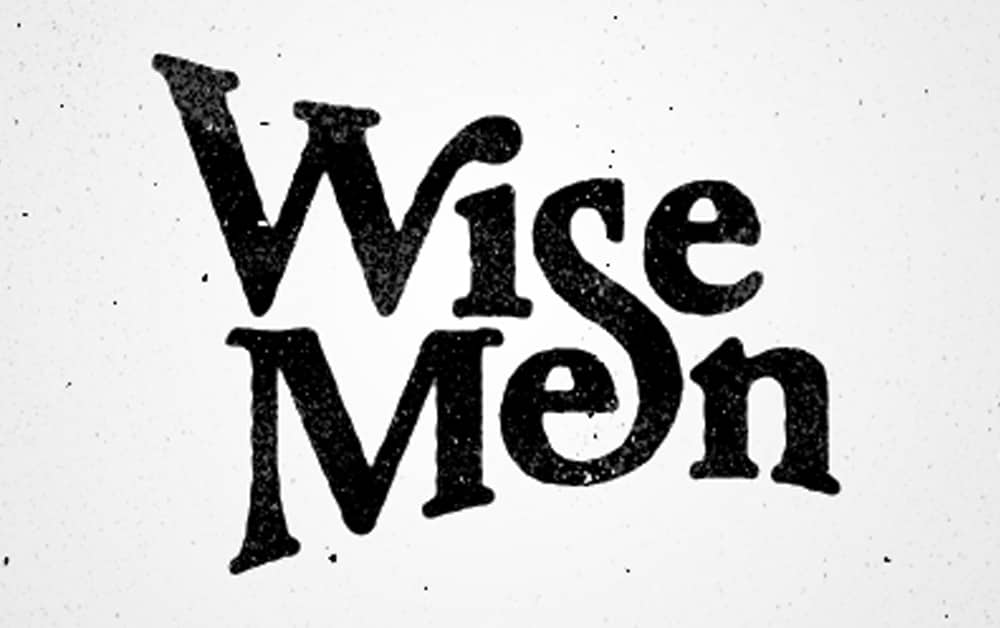
If you had to pick just one word that would be your best advice to creative people, what would it be?
I would say “relax.” I think that people take themselves and their work way too seriously. I think people think that graphic design is more important than it is. It is important and you can make the case that it can save lives and change minds, do all that stuff, but you could probably make that case about any job if you really wanted to. I think that people take themselves and design and illustration a little too seriously, and I think, like anything else, if you’re not relaxed, then you’re tensed up. And [then] you’re going to miss something, or get injured, or something like that. So yeah, if it had to be one word, it would be "relax." Take it easy.
Note: Original interview content has been slightly shortened.
